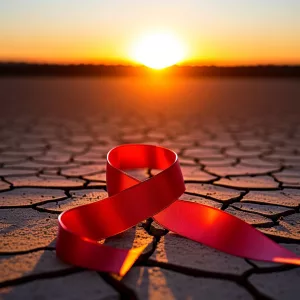The Vineyard Hotel’s TakeABreather package offers a peaceful escape just outside Cape Town, where guests can slow down and relax amid beautiful gardens and gentle nature. With cozy rooms, tasty breakfasts, and soothing spa treatments, it’s a perfect place to forget the busy world and find calm. Here, time feels softer, and simple moments—like strolling under dappled sunlight or sipping herbal tea—become pure joy. This special offer invites you to pause, breathe deeply, and rediscover the true meaning of rest.
Athlone Power Station in Cape Town stands at a crossroads between honoring its rich industrial past and embracing a greener future. Once a mighty coalpowered giant, its iconic chimneys now watch over a city eager to turn the site into a hub for clean solar energy and innovation. But preserving this history sparks passionate debates, with some fighting to keep its memories alive while others push for urgent renewable development. The battle over Athlone reflects a deeper story about how cities balance memory, progress, and hope for a better tomorrow.
White South Africans are moving to America because they worry about crime, money problems, and changes in South Africa’s laws about land and jobs. Their arrival has sparked big debates about race, identity, and history, with some American leaders calling it a rescue mission, while South Africa’s government says there’s no real danger. Famous people like Elon Musk have made the story louder, bringing old tensions to new places. This move is not just about people finding a new home—it’s tied up with politics, memories of apartheid, and hopes for a fair future.
South Africa’s fight against HIV faces a tough new challenge after international aid, especially from the US, was suddenly pulled back. This caused many clinics to close and thousands of health workers to lose jobs, leaving vulnerable people without the care they urgently need. Communities and local groups are stepping up, trying to fill the gap with their own efforts, but the road ahead is hard. The country now must find lasting solutions that don’t rely on outside help, holding on to hope and the spirit of togetherness.
Koyo Kouoh was a bold and inspiring curator who changed how the world sees contemporary African art. She gave local artists a powerful voice, creating spaces where their stories could be heard and celebrated. Leading Zeitz MOCAA, she made the museum a lively place full of bold ideas, honest talks, and fresh creativity. Her passion for teaching and including young artists helped build a stronger future for African art. Even after her passing, Koyo’s influence shines bright, inspiring many to keep pushing boundaries and telling true stories.
In 20172018, South Africa faced a deadly listeriosis outbreak caused by contaminated processed meats from a major factory, leading to over 1,000 infections and 200 deaths. This crisis shook the nation’s trust in food safety and exposed big companies’ failures to protect the public. Scientists used powerful DNA tools to trace the outbreak to one company, Tiger Brands, which after years of legal battles, began offering partial compensation to victims in 2025. The tragedy sparked a strong call for better food rules, corporate responsibility, and justice for all affected families. It remains a sharp reminder that keeping food safe is vital and must never be taken for granted.
Navigating Uncertainty: The Complex Landscape of SASSA Older Person Grants in South Africa, May 2025
In May 2025, many elderly South Africans face big problems getting their monthly SASSA Older Person Grants. New checks to stop fraud have caused payment delays, while confusing card changes and strict rules make things harder. Pensioners stand in long lines and worry about paying for food and medicine. Though grants recently increased a little, rising costs and slow systems leave many struggling. The system meant to protect them now feels fragile, and their future support hangs in the balance.
Between Two Worlds: The Afrikaners’ Exodus and the Complexities of South African Identity
Some Afrikaners are leaving South Africa because they fear losing their land, worry about safety, and feel unsure about their future in the changing country. When a group arrived quietly in the US, it sparked strong reactions, with South African President Ramaphosa calling them “cowards” for leaving instead of facing challenges at home. Their story is tied to deep feelings about belonging, history, and justice after apartheid. While some see their departure as giving up, others feel sadness over losing part of South Africa’s rich culture. This migration reflects a big, ongoing struggle over identity, land, and hope in a country still healing from its past.
Celebrate your birthday in Cape Town with amazing free adventures! On your special day, you can ride the Table Mountain Cableway, spin on the Cape Wheel, feel the thrill of the SkiHi Ride, or explore the Two Oceans Aquarium without paying a cent. Just show your ID, and the city’s beautiful mountains, ocean views, and exciting attractions become your birthday gifts. It’s Cape Town’s way of making your day unforgettable and filled with joy!
A group of 49 Afrikaners left South Africa for the United States in a journey full of hope and uncertainty. Sponsored by the Trump administration, their move sparked heated debates about race, migration, and land politics in both countries. As they stepped onto the plane at dawn, these families carried memories of their homeland and dreams for a safer future. Their story shines a light on how deeply belonging and identity shape the lives of people across the world.
Espressolab, a top coffee shop in Cape Town, stands out by blending carefully chosen, ethical beans with skilled baristas and a cozy, stylish space. It is more than just a place to drink coffee—it’s a vibrant spot where tradition meets innovation, offering unique flavors and a strong sense of community. Coffee itself has grown from a simple morning drink into a global ritual that connects people through history, culture, and shared moments. Espressolab’s rise reflects South Africa’s exciting role in the worldwide coffee scene, showing how great coffee can bring people together while caring for the planet.
Mother’s Day at The Mint Restaurant & WoodFired Grill is a warm and elegant celebration in Cape Town’s historic Taj Hotel. Families enjoy a delicious buffet featuring flavors from around the world—like spicy Indian curries, fresh sushi, and creamy Italian pasta—served with sparkling wine and friendly service. The beautiful setting, rich with history and style, makes every mom feel special and loved. With sweet desserts and joyful laughter filling the air, this day becomes a memorable feast of family, love, and gratitude.
Mother’s Day in Cape Town and the Winelands is a special time to celebrate moms with delicious food, beautiful views, and family fun. From cozy vineyard lunches with Italian flavors at Bacco Estate to relaxed woodfired pizzas and garden play at Botanicum, there’s something for every family. Elegant brunches and teas at Cape Grace Hotel add a touch of luxury, while countryside spots like Deux Lions and Erinvale offer warm, hearty meals. Everywhere you go, the day is filled with laughter, love, and unforgettable moments shared around the table.
Cape Town is about to open the exciting Museum of Illusions on Kloof Street, a fun place where art and science come alive through mindbending optical tricks. Visitors can walk through rooms that play with gravity, see endless reflections, and discover how our brains can be fooled by what we see. This interactive museum invites everyone to touch, explore, and learn in a playful way. It’s a fresh, magical experience that turns seeing into an adventure for all ages. Cape Town now joins a global family of museums that celebrate wonder and curiosity.
South Africa’s roads are among the deadliest in the world, with many crashes caused by drunk driving, low seatbelt use, poor roads, and weak law enforcement. Over half of all road deaths involve alcohol, and most people don’t regularly buckle up, making accidents even more deadly. Broken roads and overcrowded taxis add to the danger, while many drivers lack proper training. To fix this crisis, South Africa needs stronger laws, better education, and a big change in how people value safety and life on the road.
During apartheid, thousands of South Africans fled their homes to escape violence and unfair laws. They found safety in nearby African countries like Tanzania and Zambia, as well as in Europe and the United States, where they could study and keep fighting for freedom. These new places became refuges filled with hope, learning, and strong friendships. Even though life in exile was hard, many held on to their memories and dreams of a better future. Their journey shows the courage of people seeking safety and justice across the world.
















